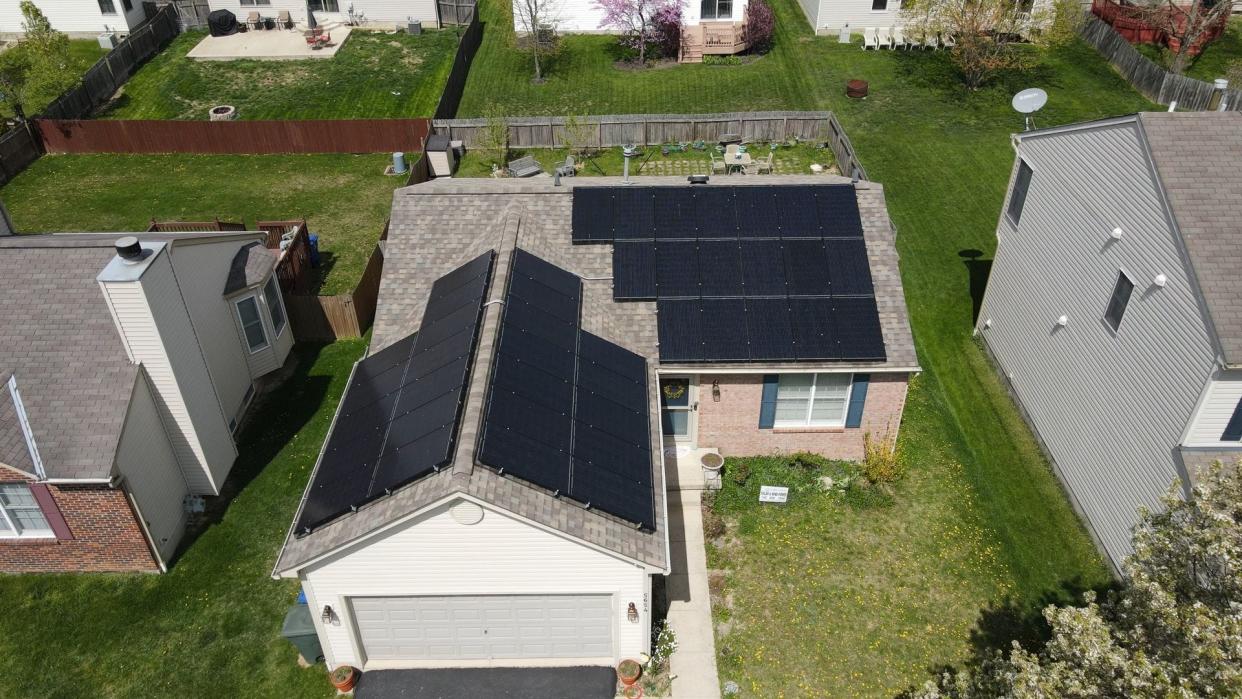Tax day is here. How going solar can keep more money in your pockets
Joe Flarida serves as the executive director of Power A Clean Future Ohio.
Tax day is here and this year, Americans had a brand new list of tax credits available to them to reduce their tax liability and put more money back into their own pockets.
Many of these will also benefit to the U.S. economy and lower emissions.
In 2022, President Joe Biden signed into law the Inflation Reduction Act — and it could not have come soon enough.

Rising energy prices and strained household budgets need a new set of solutions. Fortunately, rooftop solar, heat pumps, energy efficiency upgrades, geothermal systems, and a variety of other technologies that the law incentivizes can help reduce energy use and save money for homeowners and, in some cases, renters, as well.
Tax credits for installing rooftop solar can save up to 30% of project costs and hundreds per year on energy bills.
How being energy efficient can save you money
Families installing efficient electric heat pumps can receive a tax credit of up to $2,000 and save $500 annually on energy costs. Home efficiency improvements such as doors and windows can receive tax credits worth hundreds of dollars.
What is the Inflation Reduction Act? Everything to know about one of Biden's big laws
If you didn’t take advantage of these tax credits this past year, the good news is that these will be in place for 10 years. So, if you’re considering solar or you want to see a community solar project implemented in your area, now is the time to act!
Like everything in life, though, it’s never quite that simple. We need supportive state and local policies if we are going to fully take advantage of the financial benefits included in federal law.
The city of Columbus is poised to adopt a net metering policy for the city’s municipal utility and its customers at Monday’s council meeting.
What is net metering?
Net metering is a policy that allows residents who install rooftop solar to see cost savings on their bills as a result of the energy they produce.
Residents with solar will pay the balance of what they produce and consume from their solar panels each month.
It’s basic fairness and unlocks a new set of opportunities for Columbus residents served by the Department of Public Utilities. Councilmember Chris Wyche held a hearing and heard from expert witnesses last month to help finalize this policy and ensure it is both well-designed and can be implemented swiftly.

Beyond the tax credits available, new federal grants will be issued in the coming days to fund solar projects for low-to-moderate income households —the Solar for All program.
Power a Clean Future Ohio supported a proposal that will use this grant money to fully fund solar PV systems for low-income households with rooftop and community solar projects. Without this net-metering policy, these opportunities would not be possible.
These projects and financial benefits for Ohioans don’t happen without every level of government working in concert.
Fortunately, cities like Columbus and other local governments across the state are leading the charge and developing clear plans to take advantage of this once-in-a-lifetime opportunity.
So, on this tax day, consider taking that refund and putting it into something that will pay you back even more. Take advantage of energy savings and prioritize the health of your home and your budget.
Joe Flarida serves as the executive director of Power A Clean Future Ohio. PCFO is a nonprofit that works directly with local governments across Ohio to encourage and enable the adoption of clean energy technology and climate solutions.
This article originally appeared on The Columbus Dispatch: Tax day: How solar energy can save you big time
